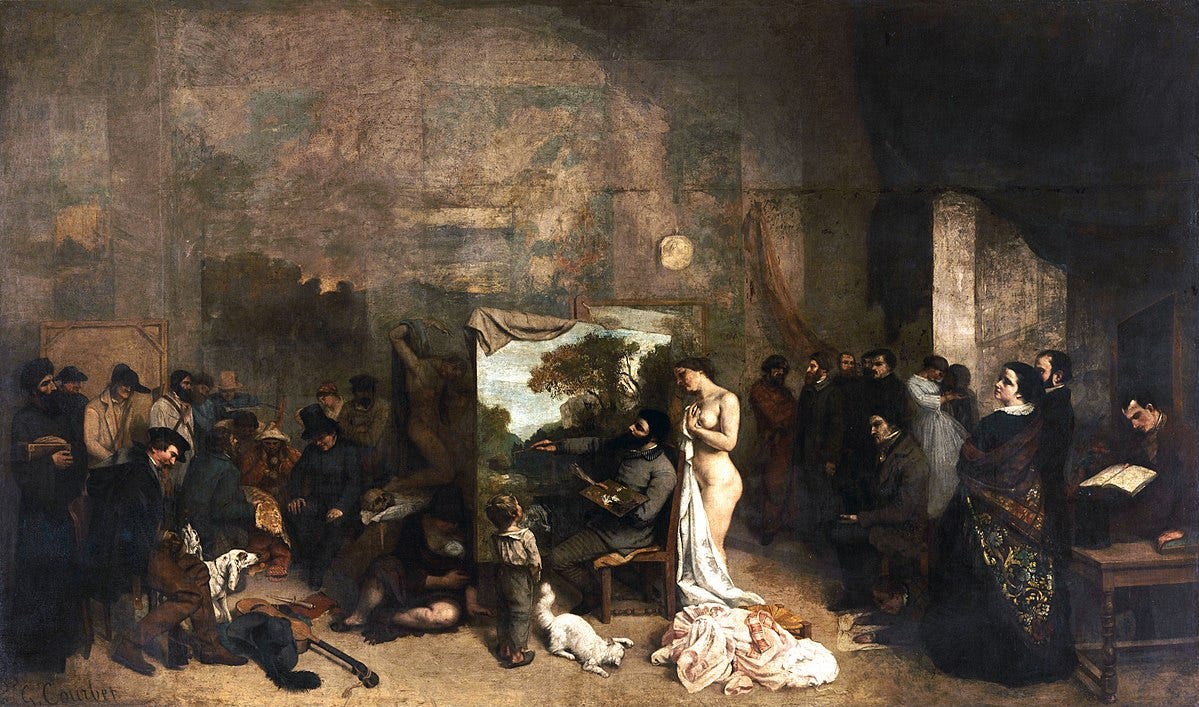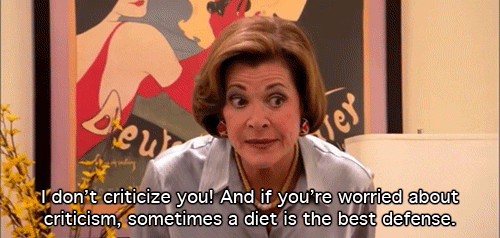It’s quite funny to realise that I can actually send more than one letter out a month, so I’m just drafting a little note about criticism and public figures which I’ve been turning over in my brain for a couple of days now. 🧠
I’m currently editing the second half of the cultural appropriation essay, which isn’t like to come out until the weekend because I have actual professional responsibilities to take care of which pays for the time I take to draft this (free!) piece of writing. Most people are unaware of this but writers actually cannot subsist on kudos and pennies while still continue to do the work that enables your little capitalist machines to keep going.
Shocking, I know.
Anyway, if you would like to receive part 2 right in your inboxes, you can, as the Youth like to say, “smash that subscribe button” and you’ll receive it in the dead of night when I am done writing/editing/proofreading it.
Or you can also feel free to share this piece with your friends to show them how great or terrible a writer I am. I don’t particularly mind which characterisation you choose. Win-win!
On public criticism
Before I do what I do now, I worked as a technology journalist — I ran interviews, typed them up and wrote articles — and later I would side-job as a freelance writer, doing press releases, blog-type pieces of content and so on. I’ve worked as a social media manager, assisted a venture capitalist in managing public communications, and written art reviews in exchange for free tickets and meals. Dear reader, I’ve bled all over the page for my supper in tones of high praise, but I have also panned things, and made my editors make small animal noises because of the length of my drafts. I’ve also been shat on for stuff I’ve written, online and in the comments section.
Which is all to say that I am no stranger to either bad press or criticism.
I don’t particularly think of myself as a journalist any longer – I’m suspicious of things like “objective reporting” because I think it’s Fake and a Construct designed to enable our worst habits, like ignoring moral imperatives — so it feels weird to have to act as though I am a journalist (I’m not) but I believe in proper sourcing, and referencing.
Which is to say, I do this for free but I also try to do this well, but also I am not beholden to interviewing people for what I write, or doing the Actual Soul-searching Work that should actually be done by brands or public figures and their like.
I am also not a public intellectual, merely an occasionally essayist. Sorry to disappoint lol.
Here is a journalism nugget which I continue to carry into everything I do: if someone decides to do something in public (i.e. outside the comfort of four walls and a locked door), then the public has a right to comment on it. That includes shit that is posted on social media, especially in a setting where your social media is not private and limited, and is in fact part of an individual/business’s branding.
You may quibble with whether or not the Fourth Estate can technically be termed “the public”, but I certainly think that if an individual – say a purveyor of expensive coffee beans – decides to accept an invitation to be interview by a widely-read publication – for instance, The New York Times – then they have to also be aware that is an invitation to have their actions, words and sentiments scrutinised by all parties with the ability to access and read said-interview.
And that feedback doesn’t have to be positive.
The purveyor of expensive coffee beans does not have to read the negative criticism that emerges – in fact, most novelists will tell you that they assiduously avoid reading bad reviews of their books on sites like Goodreads – inasmuch as the public really has the right to say whatever they want. (Of course, there are limits, and I’m going to get to that shortly, but bear with me).
I suppose what I am really reaching towards is that in the aftermath of the fiasco surrounding Nala and its founder-owner, there’s been a lot of teeth-gnashing and complaining from certain corners of the internet about the treatment she has received. Treatment which has been characterised as “cyberbullying” and unwarranted—which, lmao if you’re reading is you’ll probably know I disagree with.

Bad press vs cyberbullying
During the last two Women’s Marches, I volunteered my time and energy as a support staff both offline and online—in 2019, I was working with women’s groups on documenting and observing the backlash against participants, and in 2020, I was running around on the ground as a marshal.
So, I know what cyberbullying looks like and let me provide some choice example: death threats. Rape threats. Doxing threats. Actual instances of doxing. Reaching out to employers to complain about your actions. Sending screenshots of your place of work, of your LinkedIn, of your Instagram, of your loved ones—all accompanied with threats of violence. It’s fat shaming comments, which equate the value of what you have to say to your outward appearance. It’s persistent and systematic trolling of social media accounts. It’s hunting down phone numbers and distributing them to a network of other people that can be then used to spam you with threats across a variety of mediums.
Friend, bad press and negative criticism is not cyberbullying.
If you conflate the two, I can assure you that that is far more harmful to the anti-cyberbullying cause than anything a bunch of Too Online Gen-Zers saying “okay, boomer” can do.
There are people saying the critics aren’t grateful enough for the contributions—that the anger was tantamount to “hate”—I don’t know about you, but since when was experiencing “anger” the same as “hating” someone?
I am, of course, cherry-picking from the comments (this is my newsletter, after all) but I’m not going to lie, it was super disappointing to read a lot of the defensive comments that were pinging all around the internet over the weekend because: a) they seemed to come from a very specific demographic of people living in a very specific neighbourhood in Kuala Lumpur; and b) they seemed to completely ignore the actual substance of the criticism being levelled. To me, it was hilarious that there were people pleading for more “rational” and “logical” responses, purely based on an argument whose central thesis is (I’m generalising here) “we are friends”.
As if personal friendship is an automatic pardon for bad behaviour.
I mean, sorry but — how embarrassing? I have friends who I adore but even I am adult enough to recognise that they are flawed people whose shitty behaviour and sometimes even shittier words can and should be called out. If we—if you, dear presumptive adult—cannot figure out how to not automatically forgive (widely accepted) cringe-worthy behaviour because of the panacea of Friendship (especially in a scenario that is so low stakes and largely unimportant) then you’re going to be taken for a ride.
Incidentally and only somewhat relatedly, this is why we cannot solve Bigger Problems, like, off the top of my head, corruption, sexual assault and racism.

Of course, I know in my heart of hearts that the real problem here is that a lot of the people involved here are very much unaccustomed to negative criticism, or as I like to call it, Bad Vibes.
A lot of these brands are – with good reason – accustomed to only positive feedback and many of them define themselves in opposition to the Big Bad Corporations of the world, such as McDonald’s or Shell Corporation, just to name a few—while often eliding the inconvenient fact that they cater to a specific demographic of people that is positioned on the exclusion of the majority (i.e. poor people). So, because God is fair and the world cannot subsist on recycled-bike shorts alone, when the inevitable tide of Negative Criticism rises to meet them, these brands Freak Out, as do their supporters.
So I suppose I leave you with this: if your favourite brand/person cannot take negative criticism well—if they cannot do the hard work of listening without insisting on their moral righteousness — then I think you need to interrogate what that says about their values. What do they actually care about: being right, or doing right by their communities?
Until next time, friends.
Yours, from the void,
Sam.



